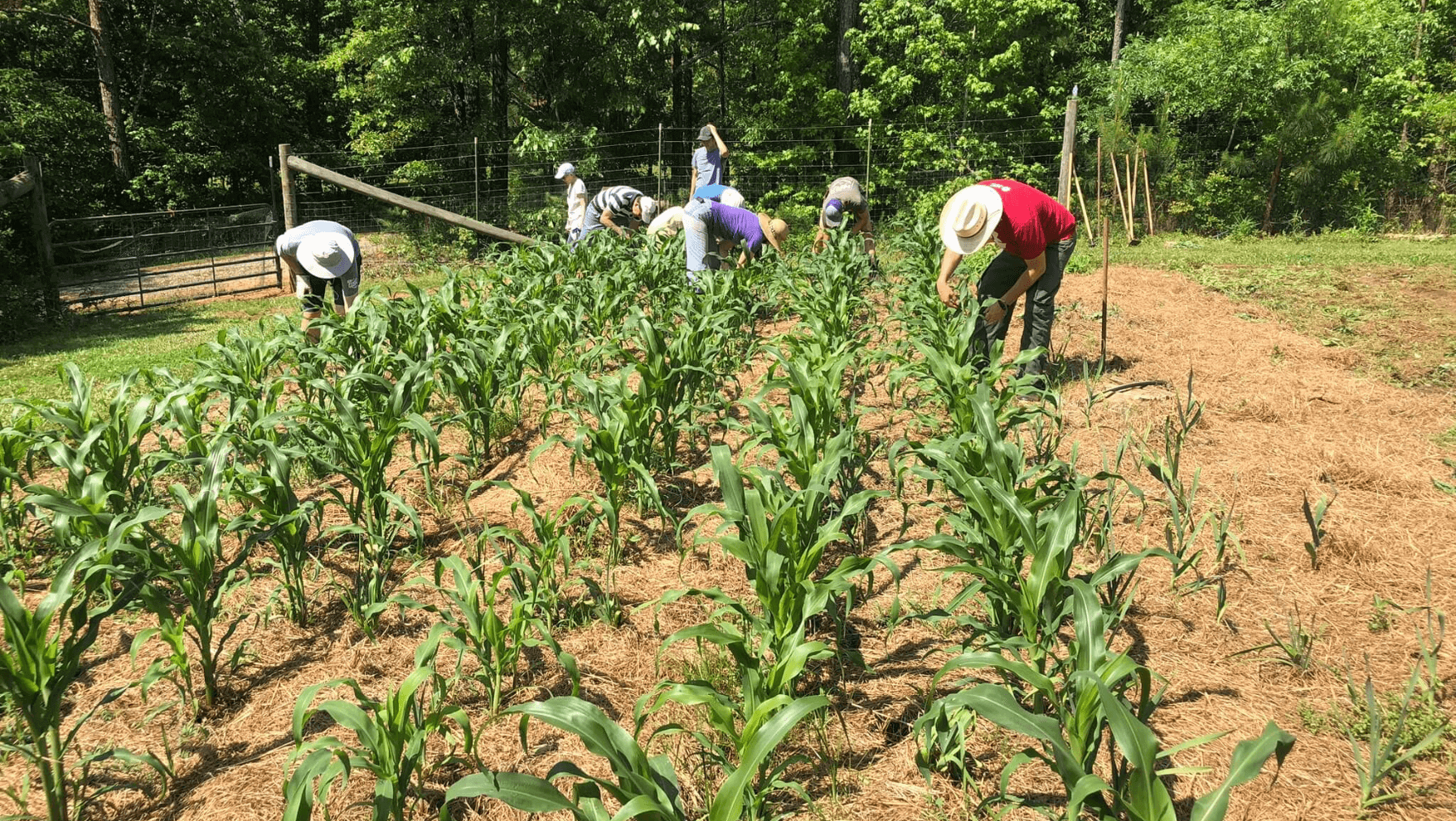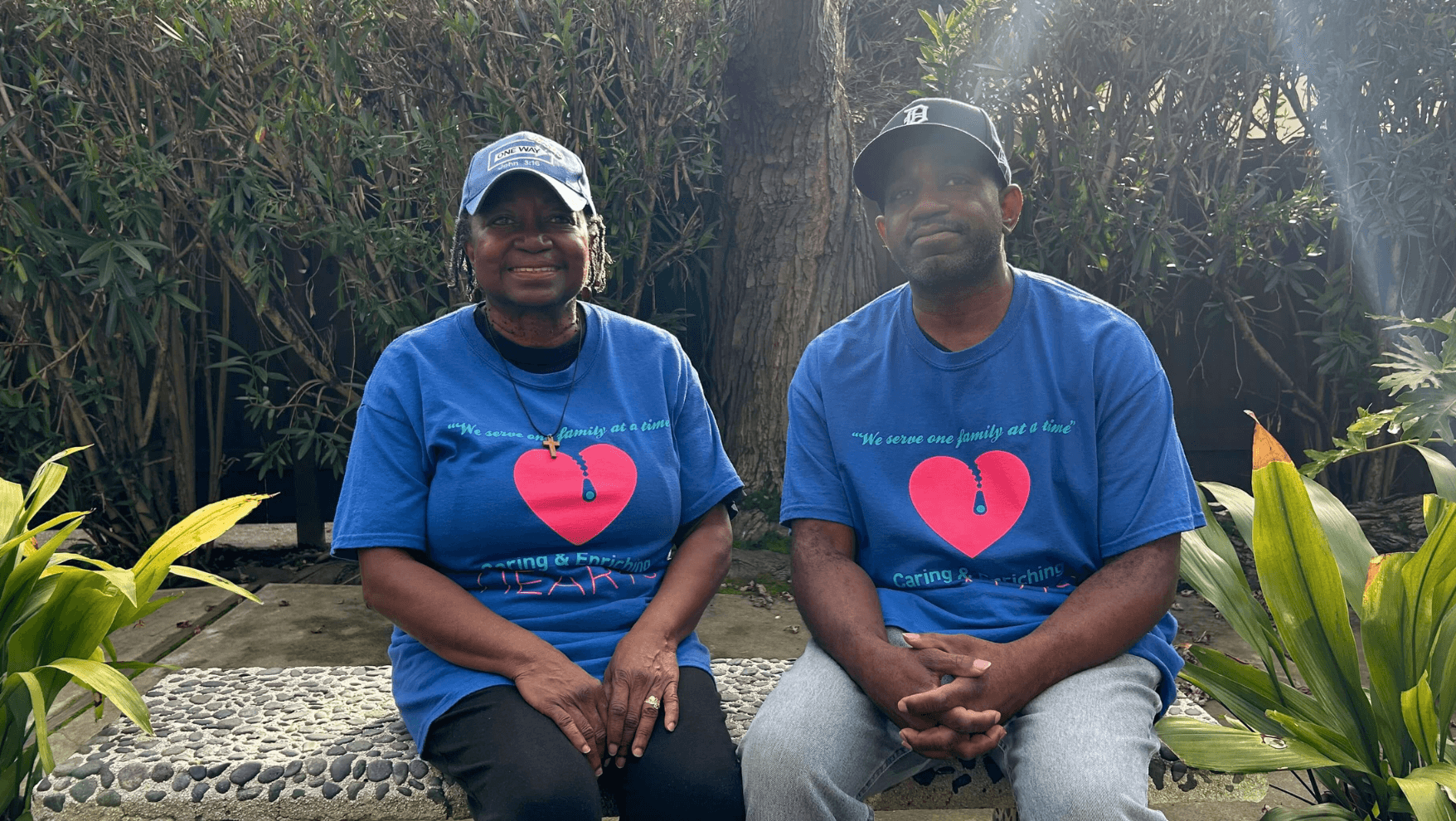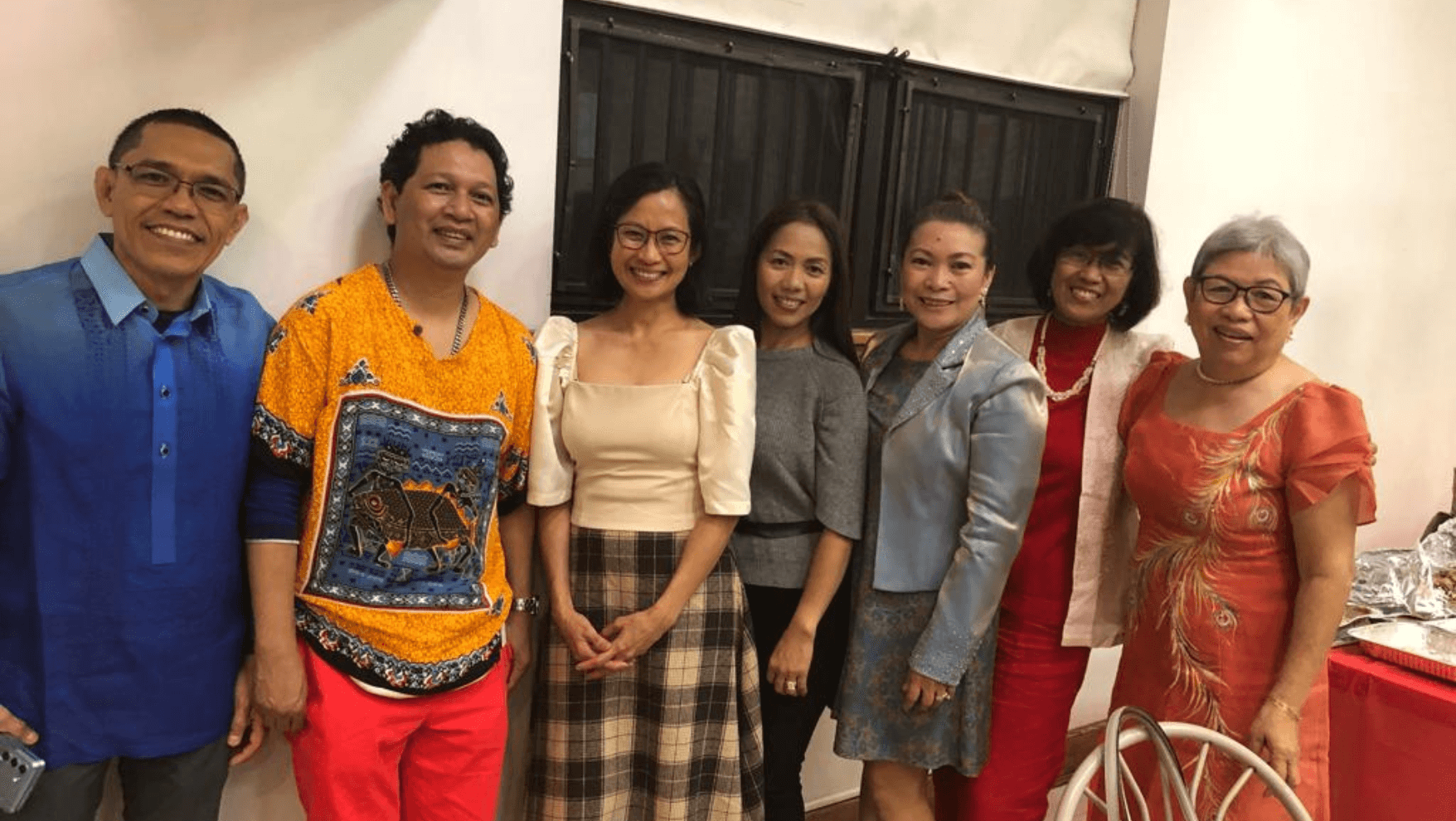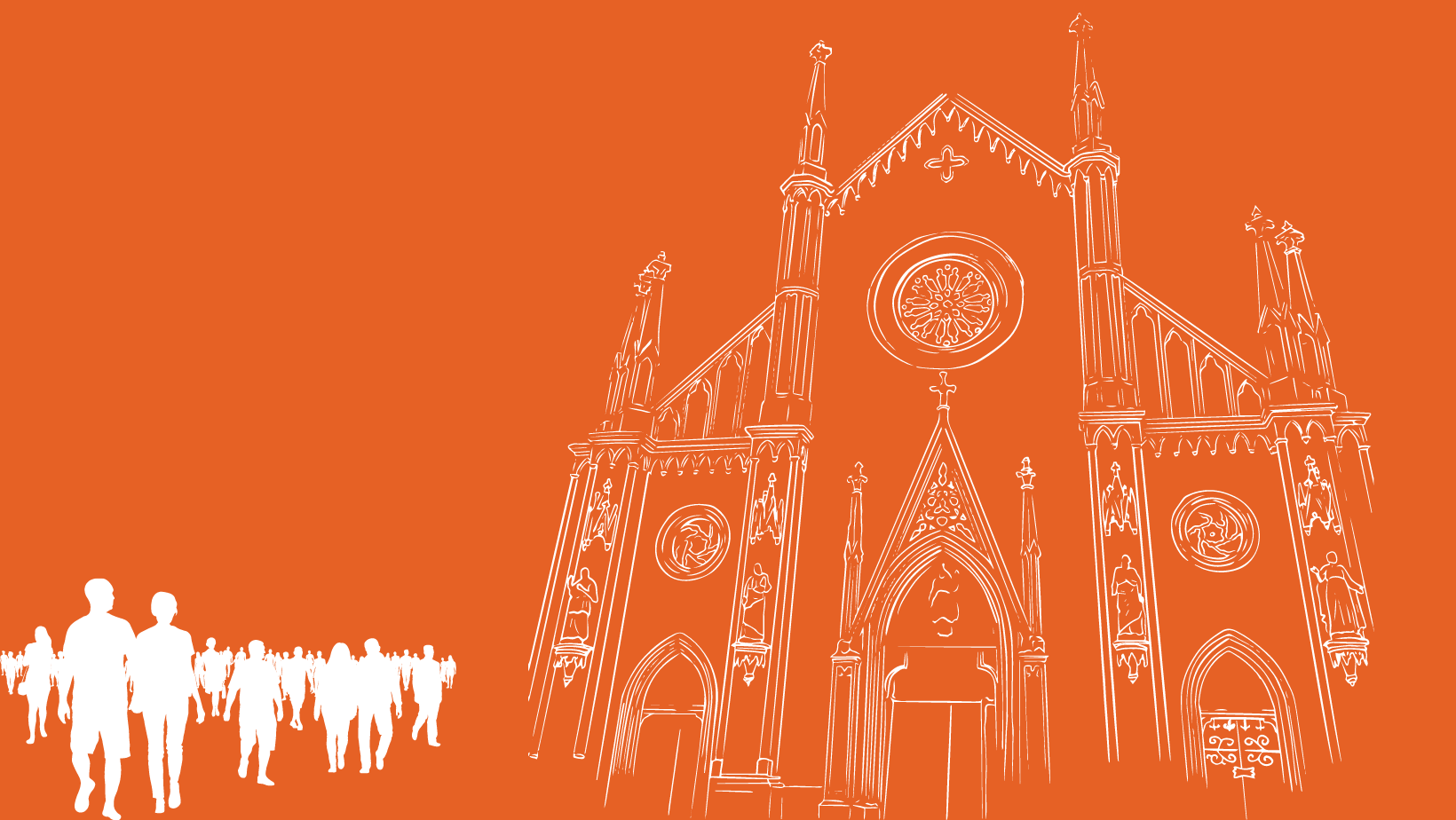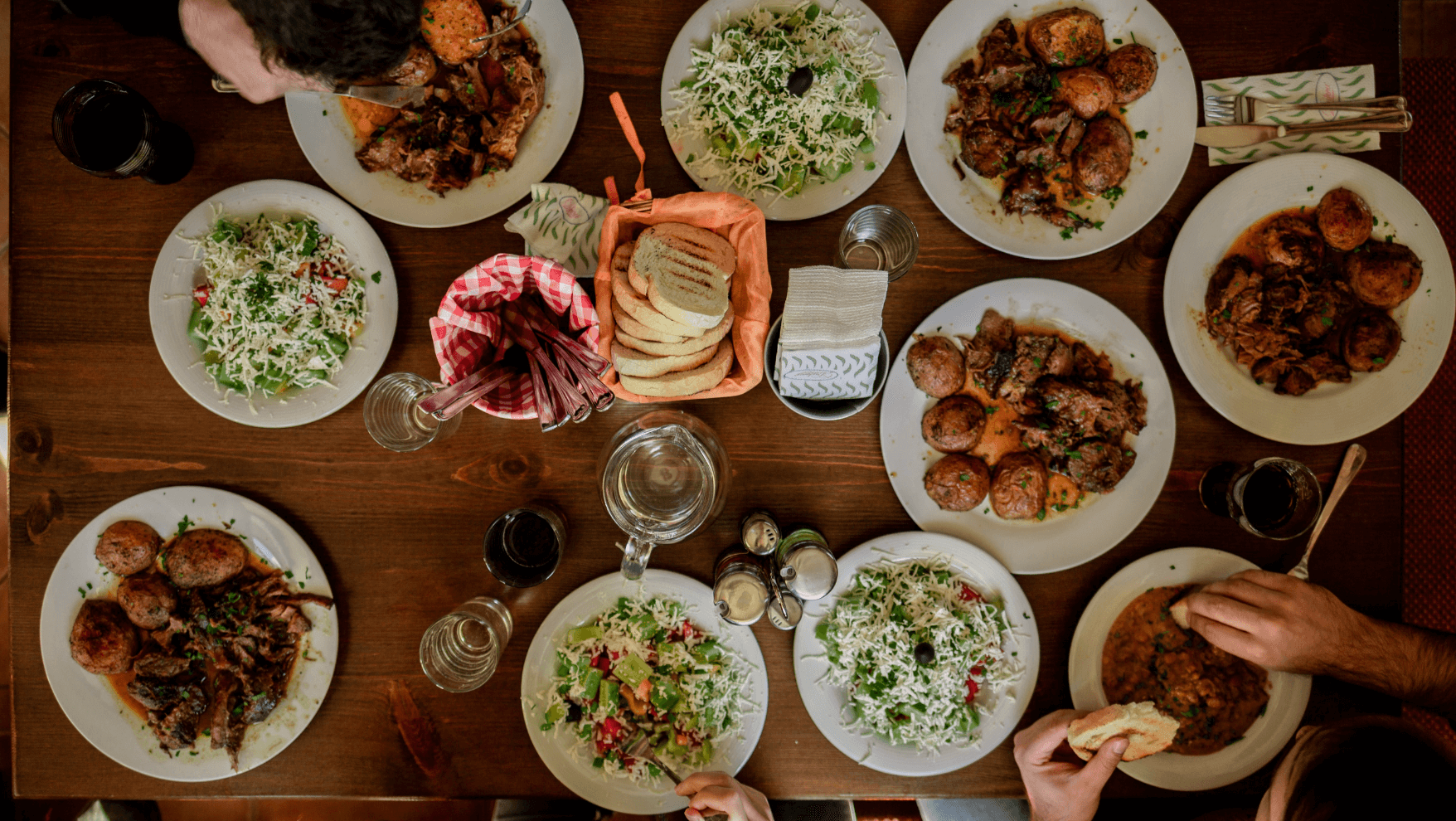
Four people sit around a table set with plates of various foods. Photo by Stefan Vladimirov for Unsplash.
As the COVID-19 pandemic is still fresh in billions of people’s minds and current events instigate fears felt all over the world, one organization sets out to change that by fostering community through food and Scripture.
Edible Theology provides a simple solution to a complex problem. They fill the isolation gap felt by many members of the Body of Christ — such as individuals and tired pastors looking for a way to nourish their flock — by combining two primary needs: food and community.
The Body of Christ is intended to function beyond the Sunday morning service. Edible Theology believes the way communal needs are met is by doing life together, and the way that is done best is by gathering around the table.
Kendall Vanderslice, Edible Theology founder, baker, author and theologian, wrote in an email interview that spending time around the table is a primary example of how God wants us to live our lives.
Spending time with others while sharing a meal is not optional, it is necessary, Vanderslice wrote.
“The table is a place that can hold both our joys and our fears, our questions and our concerns, our similarities and our differences,” Vanderslice wrote. “This makes it the perfect place to live out the beauty and complexity of community too.”

Eight people sit around a table, engaged in conversation. Photo by Zach Reiner for Unsplash.
Eating and fellowshipping around the table is one way believers live out Romans 12:5, which says that each member of the Body of Christ “belongs to all the others,” and 1 Corinthians 12:25–27, which talks about unity among the Body of Christ.
To be a healthy member of the body and to grow individually, community is necessary, according to Paul. One way to practice community is through a daily need — eating.
Sharing a meal is an act of giving and receiving, according to United Methodist Insight. The concept is similar to the communion that Christians do together, taking a piece of bread in remembrance of Jesus’ life and drinking grape juice in remembrance of His blood and how He died for us.
Unlike communion, when believers share a meal, they are not only receiving gifts of food and intentional conversation but are giving back the same.
When at the table, one’s own needs are met as their hunger and need for community is satiated, as well as those around them, Vanderslice wrote.
“We were created in the image of the Triune God, who exists in the perpetual community of Father, Son, and Spirit,” Vanderslice wrote. “This means that we were also created for community — the only thing that God does not call good in the creation story is a human being alone.”
When believers gather around the table, they care for their fellow members of the body of Christ, Vanderslice wrote. They are also getting their needs met — to be fed, cared for, uplifted, encouraged and nourished — literally and spiritually as a part of the Body of Christ.

A man, a woman and a child eat together. Photo by Jimmy Dean for Unsplash.
Edible Theology goes beyond strengthening relationships with the body of Christ and one another. They also show how one’s relationship to food and their own body can be restored.
Edible Theology’s “Worship at the Table” curriculum is a resource that helps participants experience this healing. It reveals how food relates to scripture, personal lives, history and cultural traditions and how sharing meals reflects back on God.
The “Worship at the Table” course serves as a guide for group or church leaders to use — complete with meal plans, icebreakers, Scripture readings, discussion prompts, podcast episodes and prayers that align with each lesson. Edible Theology’s “Bake with the Bible” curriculum is similar, but it is curated for individuals and parents.
These curricula are available for any size group of believers and can flexibly fit with various denominations and church styles.
Many believers across the world use Edible Theology’s resources whether it be through virtual or in-person workshops, podcasts, events, books or curriculum, Vanderslice wrote. The organization estimates they have impacted more than 6,000 people across the world in the two years since their creation, and over 300 churches across four countries use their curricula, Vanderslice wrote.
Through Edible Theology’s workshops and courses, participants learn how to connect with God as they cook and bake, praying as they learn how their bodies’ movements can be an act of prayer. They are transformed by a new understanding of Jesus as the Bread of Life.
Edible Theology offers several free resources, including weekly podcast episodes and sample chapters from their “Bake with the Bible” and “Worship at the Table” curriculum on their website.
Michaela Gordoni is an avid reader and part-time globe trotter. With a bachelor's degree in International Relations and experience in the non-profit world, she has a passion for people and loves to look at topics from a global perspective.






